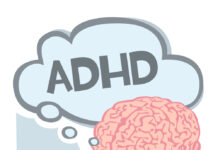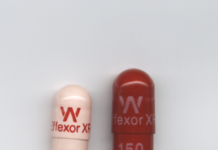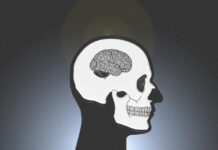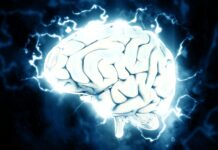A Clashing of Worlds (and Perspectives) on the Problem of Suicide
The controversy with 13RW is essentially a clashing of worlds — the world of entertainment (and its predominant audience of teens) and the world of science and practice. Who’s to say those from each perspective cannot find common ground in the service of something with life and death consequences?
Restricting Pharma Reps Contact with Docs Decreases Prescriptions
Implementing policies that regulate pharmaceutical sales representatives’ interaction with physicians may reduce prescription of promoted drugs.
Alcoholism — Is it a Disease?
We are told a story about illness, and that story serves a mindset that underlies the darkness that we feel all around us and within us. The mindset is that we are flesh robots, floating on a dead rock, in the middle of nowhere. But we are in the midst of a paradigm shift.
Lancet Psychiatry’s Controversial ADHD Study: Errors, Criticism, and Responses
Amid calls for a retraction, Lancet Psychiatry publishes articles criticizing the original finding and a response from the authors.
Psychiatric Medications Heighten Risk for Major Bone Fractures
Important assessment tool found to underestimate the risk for fracture in patients on psychiatric medication.
New UN Report: Steps Forward, But No End to Impunity
Dainius Pūras, UN Special Rapporteur on Health, has issued a groundbreaking new report critiquing biopsychiatry and its reliance on coercion, yet he pulls his punches, most unforgivably by treating the obligation to end coercive practices as a matter for gradual rather than immediate implementation.
Smash the Blue Lights: Autism Speaks is a ‘Danger to Self and Others’
There are few around Mad in America territory who would argue against the dangers of the National Alliance for Mental Illness. But as a movement, we often fail to recognize the dangers of their much younger sibling named ‘Autism Speaks’.
Oliver Sacks Helps Me Explain Hypersensitivity
In this passage Oliver Sacks writes about an altered state in which the capacity of the smell sense opens up. That is what it’s like for me all the time — hypersensitivity. I have this sort of acute capacity with all my senses all the time… it’s overwhelming, and it’s also the source of all my healing.
Nassir Ghaemi and The Psychological Fallacy
Rogue psychiatrists are straying from orthodoxy by expressing the belief that people who are burdened by excessive loss or difficulties are understandably depressed, and therefore not "diagnosable," but Dr. Ghaemi is bringing them back to the fold in the fine tradition of psychiatric pedagogy.
Study Highlights Importance of Social Interactions in Psychosis Recovery
Study finds frequency of social interactions predicts long-term remission in first-episode psychosis.
Informed Consent for Benzodiazepines: A Personal Account
I began to have transient moments where I would feel oddly disconnected from my environment or wake up and feel like I was coming out of my skin. I did not know it at the time, but I was experiencing interdose benzodiazepine withdrawal and it would end up leading me down a path of polypharmacy.
Racism Linked to Poor Health Outcomes in Children
New study finds children who have been exposed to discrimination show higher likelihood of anxiety, depression, and ADHD.
Neuroqueering Judaism: Reflections on Mad Passover
For our Haggadah, the reading material that guides the Seder activities, we included a list of the 10 modern plagues: psychiatric incarceration, forced drugging, electroshock therapy, restraint, seclusion, coercive behavior therapies, outpatient commitment, the pathology paradigm, sanism, and societal coercion to recover.
Food Insecurity Linked to Mental Health Globally
Global analysis of 149 countries finds food insecurity is associated with poorer mental health.
Change in Chicago: Playing Go
The jury was out for days. And when they came back it became clear they were wrestling with the issue of who to blame. This was like playing Go, where it can look like the black counters on the board have white encircled until white puts down one more piece and all of a sudden it wins.
Researchers Search for Subgroups Where Antidepressants Are More Effective
The researchers theorized that this increased effectiveness was due not to “antidepressant” properties, but rather to the drug’s side effects, which include insomnia, drowsiness, and nausea.
Inconvenient Truths About Antipsychotics: A Response to Goff et al
The most worrying thing about the Goff et al paper is the minimisation of the evidence that antipsychotics produce brain shrinkage. There are no studies that show progressive brain changes in people diagnosed with schizophrenia or psychosis in the absence of antipsychotic treatment.
Responding to Claims that the Benefits of Antipsychotics Outweigh the Risks
For my doctorate research, I talked with 144 people who take or have taken antipsychotics and a third reported overall positive experiences. Another third said quite the opposite, and I can hear them yelling at me to share their side of the story.
Unusual Beliefs and Behaviors vs. Objective Realities and Truths
As a parent, and a child psychologist, and just as a person, I believe that acquiescing to the idea that we should simply help people “cope more effectively with things as they perceive them” falls short of the most effective and even most loving response.
Childhood Adversity May Increase Risk of Suicide
Swedish study suggests experiencing adversity in childhood is linked to dying by suicide as an adolescent or young adult.
Training Nursing Home Staff in Understanding Needs Can Reduce Antipsychotic Use
A new study published in JAMA Internal Medicine, the largest study of its kind, has shown it is possible to reduce the use of antipsychotics in nursing homes, by engaging their staff in a training program designed to target residents’ strengths and their unmet needs.
Wendy Dolin Takes on GlaxoSmithKline And Wins — For Now at Least
In July of 2010, Stewart Dolin, a partner at the mega law firm Reed Smith, jumped in front of a subway train in Chicago, apparently suffering from akathisia caused by paroxetine. His widow sued, and the jury found GSK negligent in not informing doctors of the suicide risk
New Review Highlights Dangers of Electroconvulsive Therapy
Data shows that over a third of users experience permanent memory loss and that approximately half report not receiving adequate information about the risks from their doctors.
Anticonvulsant Implicated in Birth Defects in up to 4,100 Children, French Study Finds
Between 2,150 and 4,100 children suffered from severe malformations connected to valproate prescription.
The Poison Isn’t the Medicine: Antipsychotics, Mania and Sleep
To test the theory that a lack of sleep would trigger mania and resumption of sleep would restore health, I conducted what I thought would be a straightforward experiment: while still on lithium and a low dose of antipsychotics, I suppressed sleep for a few days.

































